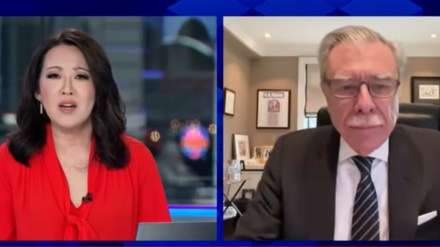With Wednesday dubbed as ‘Liberation Day’ in the United States, President Donald Trump unveiled a stacked announcement of reciprocal tariffs, insisting they would reinforce the country’s growth. The repercussions of the economic shockwave are expected to jolt the world, with roughly 100 countries affected by the new Trump tariff rates. In response to Trump’s decision, US and Asian markets plunged drastically, with Apple falling more than 7% in the after-hours trading and Tesla more than 6%, to name a few.
Referring to the historic move as a “declaration of economic independence,” Trump announced base 10% tariffs on all imports in the US. About 60 countries deemed the “worst offenders” will face even higher tariffs than that, per the White House. China, the second biggest importer to the US, was hit with a wrecking ball as it now faces a hefty 54% tariff with the additional 34% reciprocal tariffs coming on top of the existing 20% duties on all Chinese imports into the US. Even before the global traders could digest the jaw-dropping imposition, the White House announced on Tuesday that the aggressive move will go into effect “immediately.”
Former US Commerce Secretary Carlos Gutierrez predicts Trump tariffs implementation could be late
Carlos Gutierrez (under ex-POTUS George W Bush), however, has a different idea of how things will fall into place. Gutierrez, who was also a Kellogg’s CEO at one point, assumed that since these are only the “opening steps,” they would not only not be in place in the next few months, but also won’t follow through in “the back half of the year.”
“I’m in the camp that this is a beginning of a big negotiation,” he said during an interaction during CNBC’s ‘Fast Money’ segment.
Donald Trump’s Wednesday announcement also confirmed sweeping 25% tariff on all foreign made automobiles. “If the car is built in America, you’re going to get an interest rate deduction. It has never happened in America,” he said.
Weighing in on the economic impact on the automobile side of the discussion, Carlos Gutierrez added, “With Germany it’s about… they charge us 10%, we charge them 2 and a half. That could be fixed. It’s not only about bringing production back but also market access. So Germany brings down their tariffs and that gives US companies more access to the German market.”
On the reciprocal tariffs front, he said it was all “about negotiation.” Gutierrez noted how Trump has set the stage for these expansive exchanges: “He’ll be negotiating every single day for the foreseeable future with each one of these countries.”
‘China will require a special negotiation’: Carlos Gutierrez
“Vietnam, yesterday, reduced their tariff regime considerably but the president didn’t mention that but he still included Vietnam with steep tariffs,” he went on. Then pointing out how he wouldn’t lump China into other groups, the ex commerce secretary argued, “China will require a special negotiation. It will not be a phone call to talk about auto. That will be something more important, more consequential. And that’s hard to predict. It could be a trade deal or it could be something a lot bigger.”
Carlos Gutierrez reiterated, “Each one has a piece, each one has a solution. I do not believe that these tariffs will be in place going into the second half of the year.” As for the base 10% tariffs on all imports coming into the US, there’s no party to negotiate with, signalling they could, in fact, stick around for the longer haul.
Base 10% Trump tariffs to stick long term?
To this, Gutierrez said, “If President Trump is looking for a way to keep tariffs in place long term, a way to cement his legacy of tariffs, it would be by putting on, say, 10% for all imports coming into the US… So that would be a way of just saying from now on, all imports will include 10% tariff coming into the US. If companies want to evaluate and analyse whether they should be manufacturing in the US or where they are, just do a 10-year net present value analysis and that will tell you whether you can afford a plan. It’ll be predictable, it’ll be certain.”
“So that enables companies to be able to analyse it. And it will also be a way of guaranteeing a long term stream of revenue for the US government.” As for how China could possibly retaliate in response to the heavy tariffs imposed, Carlos Guttierez emphasised that there was no question about as he expected the country to respond. He insisted that it may not be as “emotional” as the US announcement, putting their interest above all. “It could be less than our tariffs, something that will hurt us but will not hurt them.” While it may not be “dollar for dollar,” Gutierrez expects it to be a “big negotiation.”
